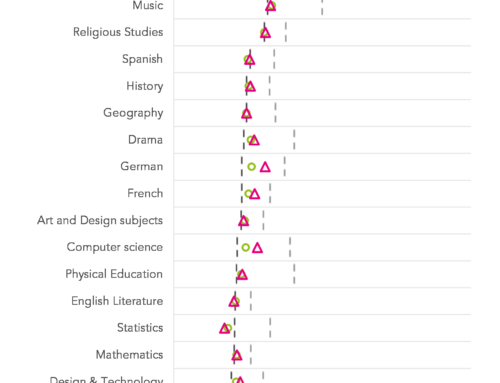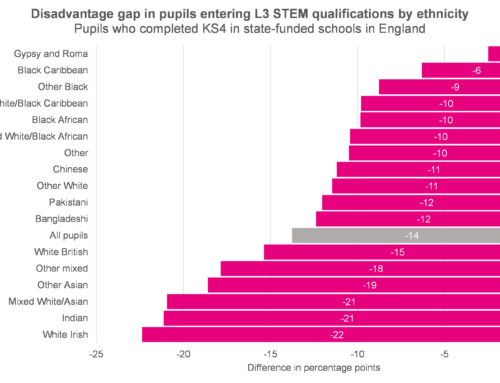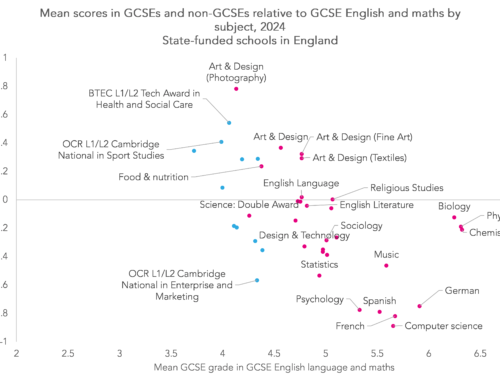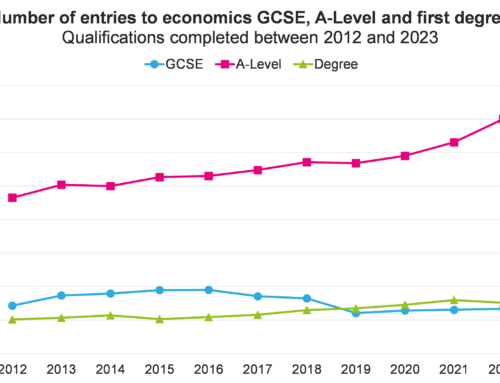Tomorrow is A-Level results day. More eagerly anticipated than ever, perhaps, as results have been determined by external exams for the first time in three years. Here’s what to expect.
Grades will be lower than 2021 and 2020, but higher than 2019
Ofqual had a big decision to make earlier this year. After two years of higher than usual grades, they announced that 2022’s grades would “reflect a midway point between summer 2019 and 2021”. In practice, this means that grades this year will be lower than for either of the previous two pandemic-affected cohorts, but higher than those pre-pandemic.
The impact will be most noticeable on top grades. The percentage of grades awarded an A* or an A rose from 25.5% in 2019 (pre-pandemic) to 44.8% last year. So we can expect a drop of around ten percentage points this year.
Subjects where grades rose the most will likely see the heftiest falls – the top 5 were music, drama, PE, Spanish and computer science. (By definition, those subjects will also likely see the greatest increase in the % of top grades awarded compared with 2019.)
But there could be surprisingly big drops in other subjects too. Specifically, subjects where prior attainment is a lot lower this year than last year[1].
We hope we’ll get some information about independent schools and the disadvantage gap
Last year Ofqual released an equalities analysis (pdf) on results day. It showed that, at A-Level, the gap between those eligible for free school meals and their peers had grown slightly between 2019 and 2021. The gap between candidates from independent schools and academies (the chosen reference group) had grown too.
Crucially, because the analysis accounted for students’ other characteristics, such as prior attainment, we could conclude that the widening of these gaps was a genuine phenomenon. (Though it wasn’t possible to say why.)
Given that this year’s grades will be impacted by the pandemic too, we’d like to see this analysis repeated this year.
Update: Ofqual have confirmed that they will be repeating the equalities analysis this year, but the results won’t be published until the Autumn
The first T-Level candidates will receive their results
T-Levels launched in September 2020. Provisional data reported that 1,300 students had enrolled on a T-Level (for context, that’s around half the number of entries to A-Level German last year). They have been following programmes in construction, digital and education and childcare at 43 providers.
We know that results will be graded on a scale from Distinction* to Pass. But we don’t know at what level of detail the results will be published. Will we get a breakdown by subject, like we do for A-Levels? Or will we get a high-level summary, like for existing technical and vocational qualifications?
Some subjects will see increases in entries, particularly in computing, DT and social sciences
Provisional data showed an increase of around 4% in A-Level entries this year compared with last.
The biggest increases were in computing (up 17.6%) and design technology (up 16.6%). Social science subjects also saw big increases (politics up 12.2%, psychology up 11.6%, sociology up 9.5% and law up 9.1%), as well as PE (up 11.6%), business (up 10.5%) and economics (up 9.3%). Most of these are part of longer-term trends.
Eight subject areas saw drops in entries. The biggest drops were in English literature (down 8.9%) and combined English language and literature (down 5%). Four STEM subjects saw drops (further maths down 2.2%, physics down 2.1%, chemistry down 1.1% and maths down 0.8%). French (down 3.7%) and religious studies (down 1%) were the other two subjects to see drops in entries.
A-Level entries increasing this year isn’t surprising because the number of 18 year-olds in the population has increased. In fact, we might have expected entries to have increased by more – GCSE grades went up through CAGs in 2020, which should have led to more pupils meeting A-Level entry criteria. Perhaps we’ll instead see a big increase in Level 3 Applied General and Technical qualification entries. Though we won’t know the detail, as subject breakdowns are not provided on results day.
Want to stay up-to-date with the latest research from FFT Education Datalab? Sign up to Datalab’s mailing list to get notifications about new blogposts, or to receive the team’s half-termly newsletter.






Leave A Comment